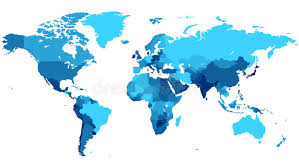Zurich, Switzerland – In an increasingly perception-driven global economy, reputation is more than optics—it’s strategy. The latest “Best Countries in the World” ranking from U.S. News & World Report, created in partnership with Wharton and WPP, surveyed over 17,000 global respondents to determine how 87 nations stack up across 73 attributes, ranging from entrepreneurship and power to cultural influence and quality of life.
The top three countries in the 2024 ranking—Switzerland, Japan, and the United States—may differ in political structure and geography, but they share one thing: deep global trust as hubs for business, innovation, and future-forward policy.
Switzerland, ranked #1 overall, was rated highly for its financial reliability, social stability, and strong international brand. Despite its small population, its reputation as a neutral, high-value economy with a world-class financial sector continues to give it outsized influence in boardrooms and capital markets alike.
Business Appeal Shapes Perception
While the U.S. ranks third, its dominance in entrepreneurship (#1) and global influence (#1 in power and agility) keeps it top-of-mind for investors and executives. Its GDP alone—over $27 trillion—positions it as a critical player in nearly every global industry. Japan, holding second place, blends high-tech innovation with industrial depth, benefiting from legacy trust and regional resilience in Asia.
Notably, economic weight remains a significant factor in global perception, even as ESG and quality-of-life metrics gain traction. Countries with robust GDPs and recognized global brands consistently land at the top, indicating that market power continues to be a key soft-power currency.
Middle East and Asia: Rising Corporate Hubs
Beyond the traditional Western strongholds, UAE (#17), Qatar (#25), and Saudi Arabia (#32) are climbing the ranks as they strategically reposition themselves through investment in sustainability, tourism, and innovation ecosystems.
At the same time, South Korea (#18), Singapore (#14), and China (#16) are reaping the rewards of sustained investments in advanced manufacturing, digital infrastructure, and tech innovation. Their upward movement reflects shifting sentiment toward a multipolar investment world, where influence is no longer exclusively defined by the West.
Methodology with Corporate Implications
The ranking is built not on raw data alone but on perception-weighted scoring—a methodology that mirrors how brands, governments, and institutions are increasingly evaluated in real-world decision-making. Each participating respondent ranked a subset of countries against attributes like trustworthiness, innovation, transparency, and business friendliness. These were normalized and weighted according to perceived importance.
For global executives, the takeaway is clear: national reputation is a business asset. Countries that manage their global brand effectively—through policy consistency, economic openness, and innovation investment—enjoy a reputational halo that can enhance foreign direct investment, talent recruitment, and strategic partnerships.
In an era where geopolitical alignment and brand credibility play into sourcing, expansion, and M&A decisions, this ranking offers more than a popularity contest—it offers a lens into global corporate confidence.






